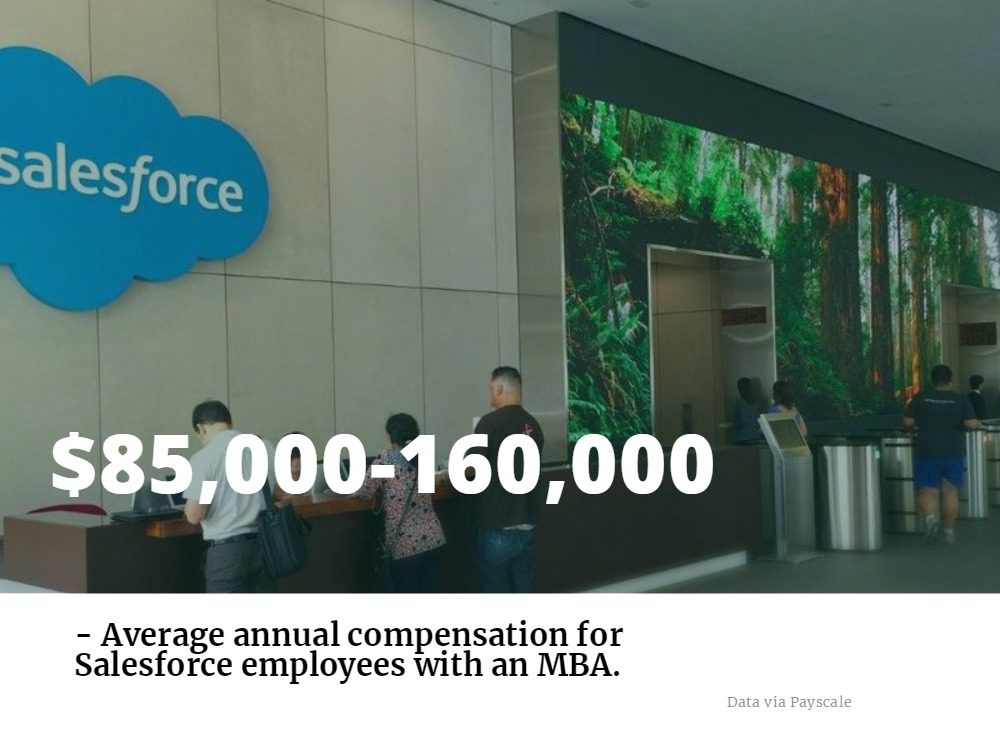How You Can Become an Implementation Consultant with an MBA

If you’re a natural problem solver who likes tackling large projects and managing teams, a role as an Implementation Consultant (IC), could be the perfect fit. With jobs in fields as varied as compliance, human resources, software development, healthcare and pharmaceuticals (among others) this is a top job for MBAs who want to put their management skills to work.

Companies like Oracle, Deloitte, IBM, PwC and McKinsey all frequently seek ICs to serve in various capacities, which is great news for MBAs who are just starting out or considering a career shift.
What is an Implementation Consultant?
In short, an IC is hired by an organization to ensure that a new system, tool, or process is used efficiently. According to an article describing the position on modernanalyst.com, “You [will be] chiefly responsible for understanding the client’s requirements and … addressing gaps so that the solution or product will meet your particular client’s needs.”
An IC is hired by a service provider (such as a tech company or a finance and consulting firm) to put the service into place and ensure that it runs as smoothly as possible. Often, the IC is brought in on a project by project basis so a fair amount of flexibility is required in the role. Also important are communication and “people skills,” as the IC will work with teams in various levels and divisions within a company.
A story on LinkedIn explored the role of the IC in the tech realm. The skills laid out, however, are applicable to any field that requires such a position. They are:
- Client Engagement
- Cross Domain Expertise
- Presentation and Training
- Cross Cultural Competence
The Implementation Consultant often acts as the ‘face’ of the service or product, so an understanding of a client’s needs and values is one of the most important aspects of this role.
Examples of scenarios in which a company brings in an IC are implementing new software, which requires configuring the product to the company’s needs and ensuring follow through after installation; assisting organizations with new corporate structures such as those that happen during mergers or acquisitions, and putting new policies and procedures in place after shifts in government regulations.
Implementation Consultant Salaries
Implementation Consultants can earn an average of $98,000 per year, according to Paysa data. This represents a range of about $85,000 in the 25th percentile of earning and $110,000 in the 75th percentile. The top 10 percent earn over $123,000.
Five of the highest paying companies for ICs are Leidos, BlackLine Systems Accounting Software, Salesforce, Omniture, and Kaplan K-12 Learning. The cities with the highest paid positions for the role are Los Angeles, San Francisco, Seattle, Philadelphia, and Boston.

A recent FirmsConsulting.com article says it best regarding the need for good ICs:
“No matter how good a firm is, they can never predict all the problems with implementing a strategy.”
Getting Started
Among the skills required to become an effective Implementation Consultant are project management and general management, along with analytics. While many undergraduate degrees with a business or information systems focus can get your foot in the door, an MBA may push you to the top of the list of desirable hires.
An MBA with a consulting, project management, or analytics focus is ideal for a future in Implementation Consulting. As previous articles have covered, Chicago Booth, MIT Sloan, Columbia Business School, and Northwestern Kellogg, are all considered leaders of the pack of feeder schools to top consulting firms.
Project management education can also help earn a way into the role. Penn State’s Smeal College of Business‘ program is one of the top in the field, as are those at Lehigh University College of Business and Economics, Georgetown University McDonough School of Business, and Boston University’s Questrom School of Business.
New Kellogg Study Reveals Common Entrepreneurial Traits

When most people think of the “ideal” entrepreneur, they picture someone like Mark Zuckerberg, an individual who is young, ambitious, and nonconformist. They imagine someone who is eager to change the status quo. We tend to mythologize these young disrupters as the consummate startup founder with these common entrepreneurial traits.
However, a recent research study from Northwestern University Kellogg School of Management has revealed that’s not the case at all. The reality is that most successful entrepreneurs are actually middle-aged, have extensive experience in their industry or sector, and their serious innovation arises from the result of their deep experience.
Entrepreneurs Are Knowledgeable
“Those with industry experience are much more likely to hit a home run than those who come from outside the sector,” explains co-author Benjamin F. Jones, Professor of Strategy and Entrepreneurship. He goes on to say, “If you’re familiar with the ins and outs of an industry, having worked in it, and you have a strong professional network, your odds of success are greater.”
Most successful entrepreneurs have to know the products, customers, suppliers, competitors, and channels of distribution well. They have to know what works and what doesn’t.
For example, Ray Kroc gained years of experience in the restaurant industry before he experienced his breakthrough success with McDonald’s. The same goes for David Duffield, the founder of PeopleSoft. He began his career understanding the nitty-gritty details of the software industry before he made his innovations.

Entrepreneurial breakthroughs mostly happen to people in their 40s, like David Duffield, founder of PeopleSoft, according to new Northwestern Kellogg entrepreneurship research.
“I’ve studied age and creativity for a while, and there’s a pattern of Nobel Prize winners, inventors, artists, and innovative minds making breakthroughs in their 40s,” Jones says. “I don’t think it’s an accident that we see the same pattern in business. These are people who have been around for a while and seen what works.”
Entrepreneurs Learn from Every Experience
However, it’s just working knowledge of their industry that leads to entrepreneurial success; it’s the ability to learn from every experience. Successful startup founders need a combination of education, experience, and specific market knowledge to get their innovations off the ground.
There’s also a need for entrepreneurs to have access to an extensive network so that they can learn from those around them. Most founders work within their social networks to facilitate creation and to get their ventures up and running.
Entrepreneurs Try Again and Again
Finally, there’s the law of batting averages. The more chances an experienced entrepreneur takes, the greater the odds are that one of their opportunities will be successful. Not everyone is willing to keep trying even after a list of failed ventures. For example, Ray Krock was in his fifties before McDonald’s became a success. Before that, he struggled to get any of his ideas to take off.
“It’s a matter of probabilities,” Jones explains. “Those who study their industry and pay close attention have either learned some things through trial and error themselves, or learned by watching others. Maybe failure itself is a useful instructor. Or maybe it’s just about having more swings of the bat.”
You can read the full article on Kellogg Insight.
This article has been edited and published with permissions from its original source, Clear Admit.
From Disney to Starbucks, and More – Chicago News

Let’s explore some of the most interesting stories that have emerged from Chicago business schools this week.
Don’t Let Complacency Derail Your Career – Kellogg Insights
Carter Cast, the Northwestern Kellogg Clinical Professor of Innovation and Entrepreneurship and author of “The Right (and Wrong) Stuff: How Brilliant Careers Are Made — and Unmade,” writes about how “Version 1.0” employees who “lack curiosity and avoid taking risks” may find themselves professionally derailed.
“You have to find ways to stay fresh, especially in this day and age with the massive rate of change in technology. Disruption is everywhere.”
-
- Following a promotion, understand your supervisor’s expectations. “Ask the boss: ‘With this new job, what will I have done in two years to make you think that this was a good move to promote me? What are the key success metrics I should be aiming for?’”
- Increase your learning agility, or how quickly you develop and apply new skills by honing a discovery mindset. “[Force] yourself to acquire new skills that could help you down the road. If you work in sales, for example, you might take time to understand how the marketing team leverages its social marketing assets.”
- Identify your particular “area of innate resistance,” which Cast believes can stifle career growth if not addressed. He advises to spend more time being open to what you could learn than spending time and energy on what you already know.
- Cast advises Version 1.0 types to “adopt the ‘lean thinking’ mentality in order to refresh their thinking and test new ideas.”
- Networks that individuals can “rely on for information and assistance” are critical when jobs are constantly in flux. According to the article, “A strong, diverse network can help you bounce back after a challenge or shake-up.”
You can read more from the article here.
From Disney to Starbucks, Shewalter Doesn’t Shy Away From Big Challenges – Gies College of Business News
The U. Illinois Gies College of Business recently profiled Erik Shewalter (BADM ’14) who offers insights from his transition from Disney’s DTC streaming service to product management role at the Starbucks Rewards Innovation Team where he oversees strategy and innovation.
Shewalter spoke at length about a defining moment from his “once-in-a-lifetime” opportunity at the Disney-branded streaming service where he realized how much he loved the work he was doing.
“One of the defining moments of my career will forever be one of my first meetings with Kevin Mayer (Chairman of Direct-to-Consumer and International). I came to the meeting prepared, and because I was so immersed in the data, I was able to share specific insights that influenced decisions like the choice to include Star Wars and Marvel content in the streaming service.”
One major reason Shewalter left Disney for Starbucks was to work alongside his fiancée Naomi Liu (FIN, BADM ’15) who works in food innovation.
“There are so many little perks that materialize every day, such as sharing a commute, or even sharing our networks (which is critical for succeeding at Starbucks). Also, we love to surprise each other by bringing the other person drinks and snacks throughout the day.”
Check out the entire Gies College of Business News interview here.
Rogers Park and Edgewater Businesses Becoming More Sustainable with Loyola’s Help – Quinlan School of Business
With the support of Loyola University’s Quinlan School of Business Experiential Learning Communities in Solidarity program, professor Nancy Landrum orchestrated partnerships with Smack Dab Chicago and Edge of Sweetness Bakery for her Sustainable Business Management class.
Teams from Landrum’s class “performed waste, water, and simple energy audits and completed greenhouse gas inventories” and then organized “cash mob” events to attract customers to the businesses.
According to the article, “Edge of Sweetness saw a 216 [percent] increase in sales during the cash mob, and Smack Dab Chicago saw a 51 [percent] increase.”
Edge of Sweetness co-owner Kate Merrill (BSN ’96) writes, “I was delighted and surprised by how thorough they were during the initial evaluation. They were also very proactive about what they wanted to do with the projects, which was very nice to see.”
Smack Dab Chicago co-founder Axel Erkenswick adds, “I was interested to see how in-depth the students went into their audits, including going through our waste. Energy conservation is important to me, because it shows customers that we are more than a McDonald’s. We are community driven and put our efforts into helping the environment.”
Read more about the Quinlan program here.
Sally Blount on Solving the Female CEO Conundrum

Just one year after setting the the Fortune 500 female CEO record, numbers are already declining.
Northwestern Health Insurance Research Finds More Costs – Chicago News

Let’s explore some of the most interesting stories that have emerged from Chicago business schools this week.
Even for the Insured, a Hospital Stay Has Surprising Costs – Kellogg Insight
Health insurance is truly a magical mystery tour of breathtaking anxiety, sometimes worse than you might think! New research explores the consequences of hospitalization on insured versus uninsured patients, which “stretch well beyond out-of-pocket costs to include impacts on credit and long-term earnings.”
In a study co-authored by Northwestern Kellogg Associate Professor of Strategy Matthew Notowidigdo, UC-Santa Cruz’s Carlos Dobkin, and MIT’s Amy Finkelstein and Raymond Kluender, the researchers found that “those without insurance ended up, on average, with $6,000 more in unpaid debt four years after being hospitalized than if there had been no admission. That is 20-times higher than those with insurance, who averaged a $300 increase in such debt four years post-hospitalization.”
Notowidigdo writes:
“We could really see how a person’s financial picture evolved after they spent time in the hospital. Hospital admissions have both financial and labor market consequences that go well beyond out-of-pocket costs but may stop short of bankruptcy. Health insurance, while beneficial, doesn’t cover all of these well enough. Individuals and policymakers need to understand that.”
You can read the full article here.
Historically Black Schools Pay More to Issue Bonds, Researchers Find – Mendoza Ideas & News
A new Journal of Financial Economics paper finds that racial animus is the primary driver of why “historically black colleges and universities (HBCUs) pay higher fees to issue tax-exempt bonds than non-HBCUs.”
“What’s in a (School) Name? Racial Discrimination in Higher Education Bond Markets,” co-authored by Viola D. Hank Associate Professor of Finance at Notre Dame‘s Paul Gao, along with Drexel’s Casey Dougal, Duke’s William J. Mayer, and the University of Washington’s Christopher A. Parsons, found evidence that contradicts a passage from Milton Friedman’s book Capitalism and Freedom, which contends that “economic development deters the expression of discrimination, racial or otherwise.”
After the researchers reviewed underwriting fees—“the fees that underwriters charge a school to bring a bond offering to investors”—they discovered that “HBCU issuance costs were about 20 percent higher than for non-HBCUs,” largely due to the fact that it’s “more difficult for underwriters to find buyers for the HBCU bonds,” particularly in.
Louisiana, Alabama, and Mississippi, where HBCUs pay “underwriters three times more to place their bonds relative to HBCUs in other states.”
According to the article:
“The paper presents several potential solutions to the problem, from lowering the price point for investors to enter this market, to making the associated state tax benefit transferable, to a federal law that designates HBCU bonds as triple tax exempt, applying to federal, state and local taxes.”
You can read more about the research here.
Red Clover Reader Creates An Online Marketplace for Diverse, Educational Children’s Books – Gies School of Business Blog
The Gies-operated iVenture Accelerator enabled early stage education tech startup Red Clover Reader to secure $15,000 in marketing and product development funding.
Co-founded by University of Illinois students Melanie Keil (a master’s student in applied health sciences) and her fiancé Armand Tossou (a Ph.D. in applied economics), Red Clover Reader “solves the lack of cultural diversity in children’s literature by connecting parents and self-published and independent authors of children’s books on an online platform that facilitates the co-creation and dissemination of more culturally diverse and value-focused content.”

Keil and Tossou / Photo via business.illinois.edu
Toussou writes, “iVenture has been a tremendous help for us because it’s both an accelerator and incubator for top student ventures. It’s provided us with mentorship and connected us with a lot of people. It’s a cohort thing. We can interact with anyone on other teams in terms of feedback and connections.”
Red Clover Reader’s goal to capture 5 percent of the $1 billion market for books and related merchandise.
Toussou adds, “We are trying to help parents discover a better alternative to the content they find online that they don’t feel good about letting their kids consume.”
You can read the full article here.
Notre Dame Startup News, and More – Chicago News

Let’s explore some of the most interesting stories that have emerged from Chicago business schools this week.
Mendoza MBA Student’s Tech Startup Secures $600K Investment – Mendoza Ideas & News
Notre Dame University’s Mendoza College of Business recently profiled current student Cory Bailey ’18, whose startup SecūrSpace is to trucks and shipping containers what Airbnb is to housing.
Bailey explains that SecūrSpace, which recently secured a $600,000 investment, attempts to provide an effective solution to the issue of temporary storage sites outside of normal shipping routes.
It’s not uncommon in the shipping world for trucks to tack on an additional 50-mile trip to a temporary storage site, Bailey explained to Mendoza Ideas & News. “And so these trucks are taking these containers way outside of L.A. and New York and other port cities because they’ve got nowhere to put them,” he said.
Thanks to the aforementioned donation, which mostly came from a Notre Dame alum, Bailey hopes to expand his project in the near future.
You can read more about Bailey and SecūrSpace here.
How a Room’s Lighting Shapes Our Decisions – Kellogg Insights
Northwestern University Kellogg School of Management assistant professor of marketing Ping Dong and Feinberg School of Medicine associate professor of psychiatry and behavioral sciences Dorothy Sit recently published new research that explores how a simple thing like lighting “can change how likely we are to make pleasurable versus practical decisions.”
Dong writes, “Ambient light is a very important experience that is easily manipulated. This shows a new psychological consequence of darkness—consumers more often choose the option that provides immediate pleasure.”
According to the article, there’s a very real possibility that “consumers are also more likely to make pleasurable choices in darker settings—reaching for a candy bar instead of an apple, or buying trendy high heels instead of practical flats—not because they feel physically hidden, but because that feeling of psychological distance frees them to do what they really want.”
You can read more about the duo’s curious research here.
Linking Sustainability, Corporate Governance, and Gender – Quinlan School of Business Blog
Starting next month, Quinlan School of Business management professor Anne Reilly will present ongoing research into “significance of gender diversity in corporate sustainability governance” at several international conferences this year.
Reilly explains that for the second paper, she and her team found that “almost half of the companies studied have at least one person as a designated sustainability leader, and over 50 percent of these leaders are women—compared to the typical 25 percent representation of women executives.”
She elaborates, “Companies are continuing to develop governance roles dedicated to sustainability, and this accountability should strengthen their strategic emphasis on this critical issue. Further, the presence of women leaders as active change agents for sustainability supports progress in gender diversity and inclusion in executive governance.”
Read more about Reilly’s research here.
